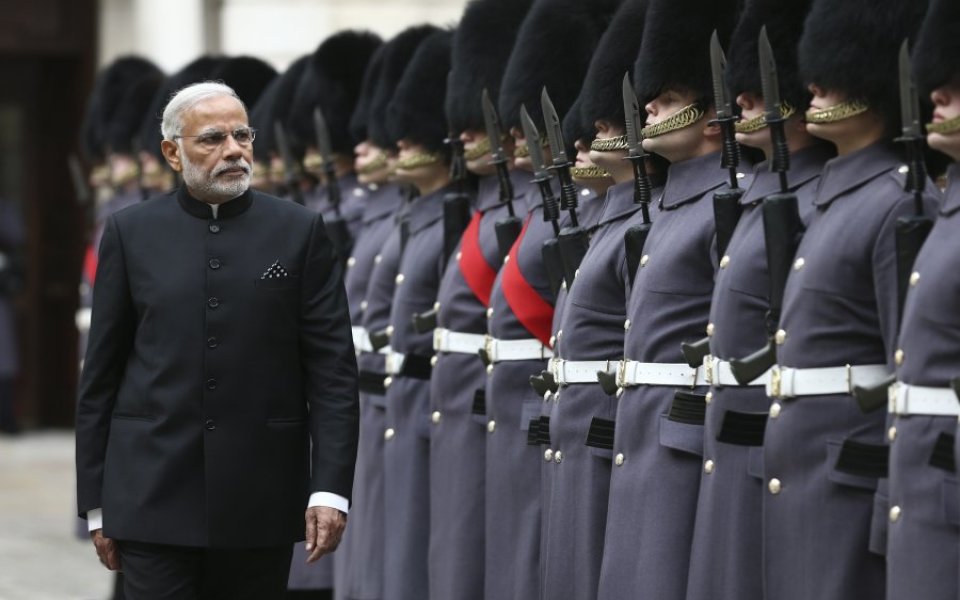Indian Prime Minister Narendra Modi is in the UK – it’s time to bring his students here, too

To London’s crown as a global leader in finance and innovation, it appears we can add a further jewel.
As anybody meandering around central London today can attest, we leave the rest of the world standing when it comes to welcoming foreign dignitaries.
Other countries may have rolled out the red carpet for the visit of Indian Prime Minister Modi; we’re offering the Red Arrows, with specially procured orange, green and white smoke canisters, as they quite literally paint the sky Indian.
After the equally dramatic (and traffic-stopping) visit of the Chinese Premier Xi Jingping earlier in the month – and, indeed, the rather less feted visit of the Egyptian President Abdel Fattah el-Sisi – it is clear that David Cameron is keen to burnish Britain’s credentials as a global player.
He is wise to. Despite the symbolic significance of Goldman Sachs this week rolling up its Brics asset management fund, a successful Britain must engage with these extraordinary growing markets.
China is slowing, yes, and India’s business and physical infrastructure remains sorely lacking, but it is a nonsense to ignore the potential of such markets. Serious political and economic engagement, too, will hopefully bring much-needed progress on human rights abroad.
These visits though are more designed to reassure the world that Britain remains an open, international, trading nation. That has been the hallmark of Britain’s economic success, and explains in large part why a rainy island in the North Atlantic possesses the world’s fifth largest economy.
Britain’s reputation for openness, though, is not guaranteed. And for all the pomp and circumstance of these state visits and the Prime Minister’s welcome commitment to them, it is his government that is putting that reputation at risk via its self-defeating immigration policy, particularly with regards to students.
Imagine being a gifted 17-year-old in India who has the option of studying abroad: do you go to the country that recently had vans driving around diverse communities encouraging illegal immigrants to “go home,” counts you as an official ‘migrant’ for the purposes of a statistic that is currently three times higher than the government wants it to be, that boots you out more or less immediately upon graduating? Or do you go elsewhere?
Those Indian students are voting with their intellects – from 38,500 Indian students in UK higher education in 2009, we are now seeing just 19,750. Not for nothing does The Times of India carry article after article about Britain’s restrictive visa system.
Reputations shift. Policies and rhetoric designed to assuage public concern here around immigration read very differently abroad, and affect significant economic decisions. The Government has welcomed Modi with open arms – it should do the same for his young people.